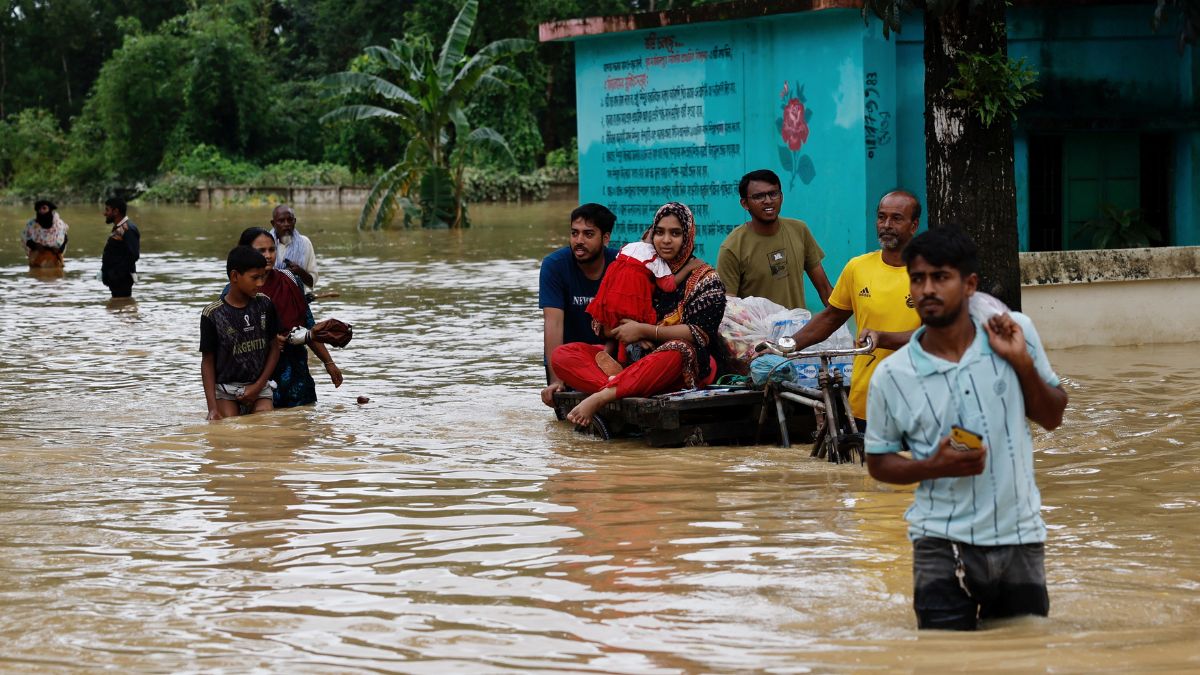Bangladesh’s floods have resulted in the destruction of approximately 1.1 million metric tons of rice, according to the agriculture ministry’s data. This loss has prompted the country to increase its rice imports, especially given the current surge in food prices.
The heavy monsoon rains and upstream runoff caused floods that hit Bangladesh in two major waves during August and October. At least 75 lives were lost, and millions were affected, particularly in the eastern and northern regions where crop damage was most severe.
As the world’s third-largest rice producer, Bangladesh typically produces around 40 million tons of rice annually to sustain its 170 million population. However, natural disasters frequently disrupt rice production, leading to increased reliance on imports.
The agriculture ministry said this year’s flooding has resulted in a substantial loss of rice production. In response, the government is moving quickly to import 500,000 tons of rice and is expected to permit private sector imports soon, a food ministry official said.
The interim government, which took power in August after deadly protests forced former Prime Minister Sheikh Hasina to flee to India, has been struggling to stabilize food prices that have surged nearly 20% in recent months.
Higher imports by Bangladesh could lift shipments from neighbouring India, the top global rice exporter, which last month cut the duty on parboiled rice exports to 10%.
Impact Shorts
More ShortsThe floods have also severely impacted other agricultural products, including more than 200,000 tons of vegetables. Total nationwide agricultural losses due to the flooding are estimated at around 45 billion taka ($380 million).
The floods this year have underscored Bangladesh’s vulnerability to climate change. A 2015 World Bank Institute analysis estimated 3.5 million people in Bangladesh are at risk of annual river flooding, a risk scientists say is worsening due to global climate change.
”To ensure food security in the face of increasing climate challenges, it is essential to develop more flood- and drought-tolerant crop varieties, along with short-duration varieties,” said Khandakar Mohammad Iftekharuddaula, chief scientific officer at the Bangladesh Rice Research Institute.
He said investing in agricultural research is crucial for developing these resilient crops.
”By focusing on flood- and drought-resistant traits, we can help farmers adapt to changing weather patterns and stabilize yields even in difficult conditions.”
($1 = 119.0000 taka)


)

)
)
)
)
)
)
)
)



